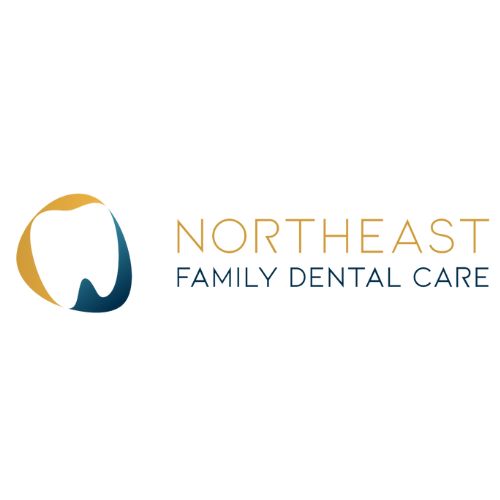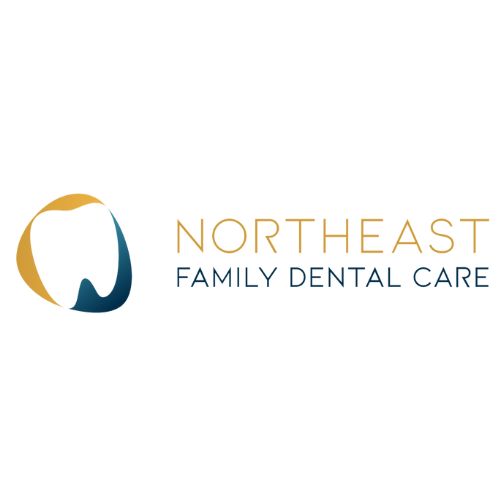A Healthy Diet Makes Happy Smiles

Did you know that what you eat can have a significant impact on your oral health? It's true – nutrition plays a crucial role in maintaining strong teeth and gums. So, if you're looking to keep your pearly whites sparkling and your gumlines healthy, it's time to pay attention to what's on your plate. In this article, we'll explore the link between nutrition and dental health, discover foods that promote optimal oral hygiene, and share tips for incorporating a balanced diet into your daily routine. Get ready to sink your teeth into some valuable information!
The Link Between Nutrition And Dental Health
A healthy diet has a direct impact on our overall health, and this includes our dental health. What we eat plays a significant role in the strength of our teeth and gums, as well as preventing common oral issues such as tooth decay and gum disease.
The link between nutrition and dental health is undeniable. Consuming foods that are nutrient-dense can provide the necessary vitamins and minerals that support strong teeth. Calcium-rich foods like dairy products, leafy greens, and almonds promote healthy enamel, while vitamin D helps with calcium absorption.
Similarly, incorporating foods high in phosphorus like lean meats, eggs, fish, and nuts can help rebuild tooth enamel. Vitamin C-rich fruits such as oranges, strawberries, and kiwis are excellent for gum health since they strengthen blood vessels.
On the flip side, consuming sugary snacks or beverages regularly can lead to tooth decay. The bacteria in our mouths feed on sugar residues left behind after eating sugary foods or drinks which produces acids that attack the teeth's enamel.
Incorporating a balanced diet into your daily routine is essential for maintaining good oral health. By including a variety of fruits, vegetables whole grains lean proteins into your meals you're ensuring optimal nutrition for both your body and your smile.
Remember that other lifestyle factors also impact oral health; avoiding smoking tobacco use excessive alcohol consumption will greatly benefit not only your general wellness but also keep those pearly whites shining bright!
Whether you're an adult or caring for little ones it's crucial to pay attention to what goes into their mouths too! Encouraging children to eat nutritious snacks instead of refined sugars will set them up for lifelong dental hygiene success!
By understanding the link between nutrition and dental health we can make informed choices when it comes to nourishing ourselves from within - leading not only happier bodies but happy smiles too! So let's raise awareness about how food affects oral wellness one bite at a time!
Foods That Promote Healthy Teeth And Gums
Foods play a crucial role in maintaining healthy teeth and gums. Incorporating certain foods into your diet can help support optimal oral health. Let's explore some tooth-friendly options that can promote those happy smiles!
1. Crunchy fruits and vegetables: Snacking on crisp apples, carrots, or celery stimulates saliva production, which helps wash away harmful bacteria and food debris.
2. Dairy products: Milk, cheese, and yogurt are rich in calcium, phosphorus, and protein – essential nutrients for strong teeth enamel. Plus, they contain casein, a protein known to neutralize acids produced by plaque bacteria.
3. Leafy greens: Spinach, kale, and other leafy greens are packed with vitamins A and C - important for gum health and collagen formation.
4. Tea: Green tea contains compounds called catechins that fight inflammation-causing bacteria in the mouth while black tea may suppress the growth of cavity-causing bacteria.
5. Nuts & seeds: Almonds provide calcium and protein while being low in sugar content compared to other snacks. Chewing on sesame seeds stimulates saliva flow which aids in protecting tooth enamel.
Remember that these foods should complement regular brushing twice a day with fluoride toothpaste as part of an overall dental hygiene routine! Stay tuned for more tips on maintaining excellent oral health naturally!
Foods To Avoid For Optimal Oral Health
When it comes to maintaining optimal oral health, it's not just about what you eat - it's also about what you avoid. Certain foods can wreak havoc on your teeth and gums, leading to decay, cavities, and gum disease. By being mindful of the foods that have a negative impact on your oral health, you can take proactive steps to protect your smile.
First and foremost, sugary treats should be limited or avoided altogether. Sugars found in candies, cookies, sodas, and even fruit juices feed the harmful bacteria in your mouth which produce acids that erode tooth enamel. Consuming too much sugar increases the risk of developing cavities.
Sticky and chewy foods like caramel or gummy bears are another culprit to steer clear of. These types of foods tend to stick to teeth for longer periods of time, allowing bacteria more opportunity to feast on them and cause damage.
Acidic foods such as citrus fruits (lemons, oranges), tomatoes, or vinegar-based dressings can also be detrimental to dental health. The acid content softens tooth enamel temporarily making them susceptible to erosion if not followed by proper oral hygiene practices.
Last but important is limiting the consumption of carbonated drinks including soda pop because they contain both high levels of sugar as well as carbonation which contributes further acidity into the mouth thereby increasing risks for dental problems over time
By avoiding these harmful food choices regularly while maintaining good oral hygiene habits such as brushing twice daily with fluoride toothpaste, flossing, and regular visits to dentists Elgin residents can significantly reduce their risk for dental issues down the road
The Role Of Vitamins And Minerals In Maintaining Strong Teeth
When it comes to maintaining strong teeth, a healthy diet rich in vitamins and minerals plays a crucial role. These nutrients are not only essential for overall health but also play a vital role in keeping your pearly whites strong and cavity-free.
One important mineral for dental health is calcium. This powerhouse nutrient helps build strong bones, including your teeth. Foods such as dairy products, almonds, and leafy greens like spinach are excellent sources of calcium that can help keep your teeth' enamel strong.
Another key player is vitamin D. It aids in the absorption of calcium from the foods you eat, ensuring that it reaches your teeth and bones effectively. Exposure to sunlight is one way to boost vitamin D levels naturally, but you can also find it in fatty fish (like salmon or mackerel) and fortified milk or orange juice.
Vitamin C is known for boosting immunity but did you know it's also great for oral health? It supports gum health by strengthening blood vessels and connective tissues around the teeth. Incorporating fruits like oranges, strawberries, and kiwis into your diet will provide an ample supply of this essential vitamin.
Phosphorus is another mineral that contributes to tooth strength by assisting with the remineralization process – repairing damaged enamel caused by acids produced by bacteria after eating sugary foods or drinks. Foods like seafood, lean meats, nuts, and beans are rich sources of phosphorus that can help maintain robust tooth structure.
Lastly - don't forget about vitamin A! It promotes saliva production which helps wash away harmful bacteria lingering in our mouths after meals. You'll find this valuable nutrient in carrots, sweet potatoes, and spinach - all delicious additions to any meal!
Incorporating these vitamins and minerals into our daily diets through natural food sources contributes significantly to having healthy smiles! So remember: reach for those leafy greens, citrus fruits,
and lean proteins regularly to keep your teeth and gums in top-notch condition. Your dentist in Elgin
Incorporating A Balanced Diet Into Your Daily Routine
Incorporating a balanced diet into your daily routine is essential for maintaining optimal oral health. By making conscious choices about the foods you eat, you can promote strong teeth and gums while reducing the risk of dental problems.
Start by including a variety of fruits and vegetables in your meals. These nutrient-rich foods not only provide vitamins and minerals but also stimulate saliva production, which helps to neutralize acids and prevent tooth decay. Incorporate leafy greens like spinach or kale, as they are high in calcium that strengthens tooth enamel.
Lean protein sources such as chicken or fish are also important for a healthy diet. Protein contains phosphorus, which along with calcium, contributes to strong teeth and bones. Additionally, dairy products like milk, cheese, and yogurt are rich in both calcium and vitamin D – nutrients essential for maintaining healthy teeth.
Avoid sugary snacks and beverages that can contribute to cavities. Instead, opt for water as your go-to drink throughout the day. Water not only hydrates but also helps wash away food particles from your mouth.
To ensure you're getting all the necessary vitamins and minerals for oral health maintenance, consider taking supplements if needed after consulting with your dentist or healthcare provider.
By incorporating these dietary changes into your daily routine alongside regular brushing and flossing habits - you'll be well on your way to achieving happy smiles!
Other Lifestyle Factors That Impact Oral Health
Maintaining good oral health goes beyond just brushing and flossing. There are several lifestyle factors that can have a direct impact on the health of your teeth and gums. Here are some important considerations to keep in mind:
1. Smoking: It's no secret that smoking is detrimental to overall health, but it also poses serious risks to oral health. Smoking increases the risk of gum disease, tooth decay, bad breath, and even oral cancer.
2. Alcohol consumption: Excessive alcohol consumption can lead to dry mouth, which reduces saliva production and increases the risk of tooth decay and gum disease.
3. Stress: Chronic stress not only affects our mental well-being but can also take a toll on our dental health. Stress has been linked to teeth grinding (bruxism), jaw pain, canker sores, and poor oral hygiene habits.
4. Poor diet: We mentioned earlier how a healthy diet plays a crucial role in maintaining optimal oral health. However, consuming excessive amounts of sugary snacks or acidic foods/drinks can contribute to tooth decay and erosion.
5. Poor oral hygiene practices: Neglecting regular brushing and flossing routines or inconsistent visits to the dentist greatly increase the risk of developing cavities, gum disease, and other dental issues.
6. Biting nails or chewing ice: These seemingly harmless habits may actually cause damage to your teeth such as chipping or cracking them.
7. Medical conditions: Certain medical conditions like diabetes or autoimmune disorders can affect oral health if left uncontrolled or untreated.
Tips For Parents On Promoting A Healthy Diet For Their Children's Smiles
As a parent, you play a crucial role in shaping your child's oral health habits. One of the most effective ways to promote healthy teeth and gums is by ensuring they have a nutritious diet. Here are some tips to help you encourage good eating habits for your children's smiles.
1. Lead by example: Children often mimic their parents' behavior, so make sure that you're setting a positive example when it comes to food choices. Show them how enjoyable it can be to eat fruits, vegetables, and whole grains.
2. Stock up on tooth-friendly snacks: Keep your pantry filled with nutritious snacks like crunchy fruits and vegetables, cheese cubes, yogurt, and nuts instead of sugary treats or chips. These options not only nourish their bodies but also provide essential nutrients for strong teeth.
3. Limit sugary drinks: Encourage water as the primary beverage choice for your children. Sugary drinks like soda or fruit juices can contribute to tooth decay if consumed in excess.
4. Make mealtime fun: Get creative with meals by making smiley faces out of fruits or arranging veggies into fun shapes on their plates. This not only makes eating more enjoyable but also encourages kids to try new foods.
5. Encourage regular brushing and flossing: Teach your children about the importance of good oral hygiene practices from an early age.
By following these tips and providing a balanced diet rich in nutrients necessary for dental health - such as calcium, vitamin D, and phosphorus - you can set your little ones up for a lifetime of happy smiles!
Incorporating a healthy diet into your daily routine is not only beneficial for your overall health, but it also plays a crucial role in maintaining optimal oral health. By understanding the link between nutrition and dental health, you can make informed choices about the foods you consume to promote healthy teeth and gums.
Foods rich in vitamins and minerals such as calcium, phosphorus, vitamin C, and vitamin D are essential for keeping your teeth strong and preventing tooth decay. Incorporating dairy products, leafy greens, fruits high in vitamin C like strawberries or oranges, and fatty fish into your diet can provide these essential nutrients.
On the other hand, it's important to be mindful of foods that can harm your oral health. Sugary snacks and drinks should be limited as they contribute to tooth decay. Acidic foods and beverages like citrus fruits or carbonated drinks can erode tooth enamel over time if consumed excessively.
Remember that a balanced diet is just one part of maintaining good oral hygiene. Regular brushing with fluoride toothpaste, flossing daily, and visiting your dentist in Elgin regularly are equally important steps in caring for your smile.
For parents looking to instill healthy eating habits in their children from an early age, lead by example! Offer nutritious meals at home with plenty of fresh fruits and vegetables while limiting sugary treats. Encourage regular dental check-ups for both yourself and your little ones to ensure any potential issues are caught early on.
By adopting a well-rounded approach that includes proper nutrition along with good oral hygiene practices, you'll set yourself up for a lifetime of happy smiles!


